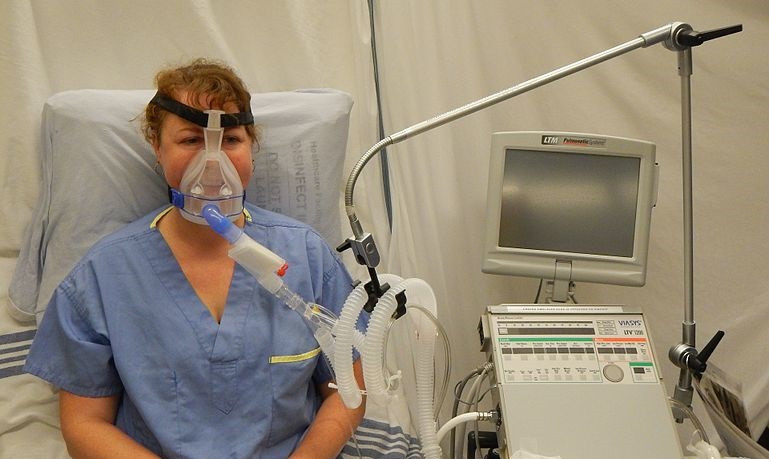Fears about medical rationing are growing among disability rights advocates as the world responds to the coronavirus.
Amid predictions about a lack of medical resources in the U.S. and reports of rationing in Italy and China, the National Council on Disability sent a letter to the U.S. Department of Health and Human Services (HHS) urging health leaders to ensure people with disabilities are protected.
“When [the HHS Office for Civil Rights] talks, the medical community listens, and OCR has a window of opportunity now, before physicians become overwhelmed with COVID-19 patients, to provide necessary information to the medical community about the provision of non-discriminatory care,” wrote Neil Romano, chairman of council, in the letter dated Wednesday.
Limited resources to treat the virus could create a “deadly outlook for people with disabilities,” he warned; and action is needed to combat the “historic and persistent discrimination against people with disabilities in healthcare.”
Disability rights advocates asked HHS to remind hospitals and doctors about the non-discrimination requirements of the Americans with Disabilities Act.
The council pointed to state protocols for medical care during times of crisis as more cause for concern.
Protocols from the New York State Department of Health, for example, support medical rationing for people who are on ventilators during a pandemic. According to the guidelines, people who use ventilators and live on their own could have their ventilator taken away if they go to a hospital for treatment of the coronavirus.
According to the department’s “Ventilator Allocation Guidelines”:
With their arrival at the hospital, [chronic care patients] are treated like any other patient who requires a ventilator and need to meet certain criteria to be eligible for ventilator therapy. While a policy to triage upon arrival may deter chronic care patients from going to an acute care facility for fear of losing access to their ventilator, it is unfair and in violation of the principles upon which this allocation scheme is based to allow them to remain on a ventilator without assessing their eligibility.
Distributive justice requires that all patients in need of a certain resource be treated equally; if chronic care patients were permitted to keep their ventilators rather than be triaged, the policy could be viewed as favoring this group over the general public.
Click here to sign up for pro-life news alerts from LifeNews.com
Later, it continues:
Finally, there are a small but increasing number of ventilator-dependent individuals who reside in the community, rather than in institutions. The Task Force concurred that community dwelling persons should not be denied access to their ventilators and the Guidelines are only applied to these patients upon their arrival at an acute care facility.
Once at a medical facility, however, the person could lose their ventilator if medical workers decide someone else needs it more.
Romano urged HHS leaders to take action before the virus spreads even more by urging doctors and hospitals to provide non-discriminatory care to people with disabilities.
“The notice should … make clear that, even in an environment where health care resources are limited, the civil rights of people with disabilities cannot be suspended or limited,” he wrote.
Italy is facing the worst of the crisis right now, and its medical system has descended into chaos, according to news reports about the situation.
One doctor who is treating patients there compared the situation to treating patients in a battlefield, like Vietnam or the aftermath of the attacks on Pearl Harbor and having to make split-second decisions on which patients will be treated and which ones will be denied care.
Shockingly, the same anti-life rationing ethic that is pervading medicine nowadays through the promotion of euthanasia and assisted suicide has become a part of suggested guidelines in Italy, as elderly and disabled patients potentially face discrimination because they are not young and healthy.
One news report indicates an Italian medical college issued shocking guidelines to doctors and medical professionals telling them to just let elderly patients die. As The Atlantic reports:
Those who are too old to have a high likelihood of recovery, or who have too low a number of “life-years” left even if they should survive, will be left to die. This sounds cruel, but the alternative, the document argues, is no better. “In case of a total saturation of resources, maintaining the criterion of ‘first come, first served’ would amount to a decision to exclude late-arriving patients from access to intensive care.”
A Washington Post report on Sunday predicted similar forced rationing decisions in the United States if the spread of the virus is not slowed.








